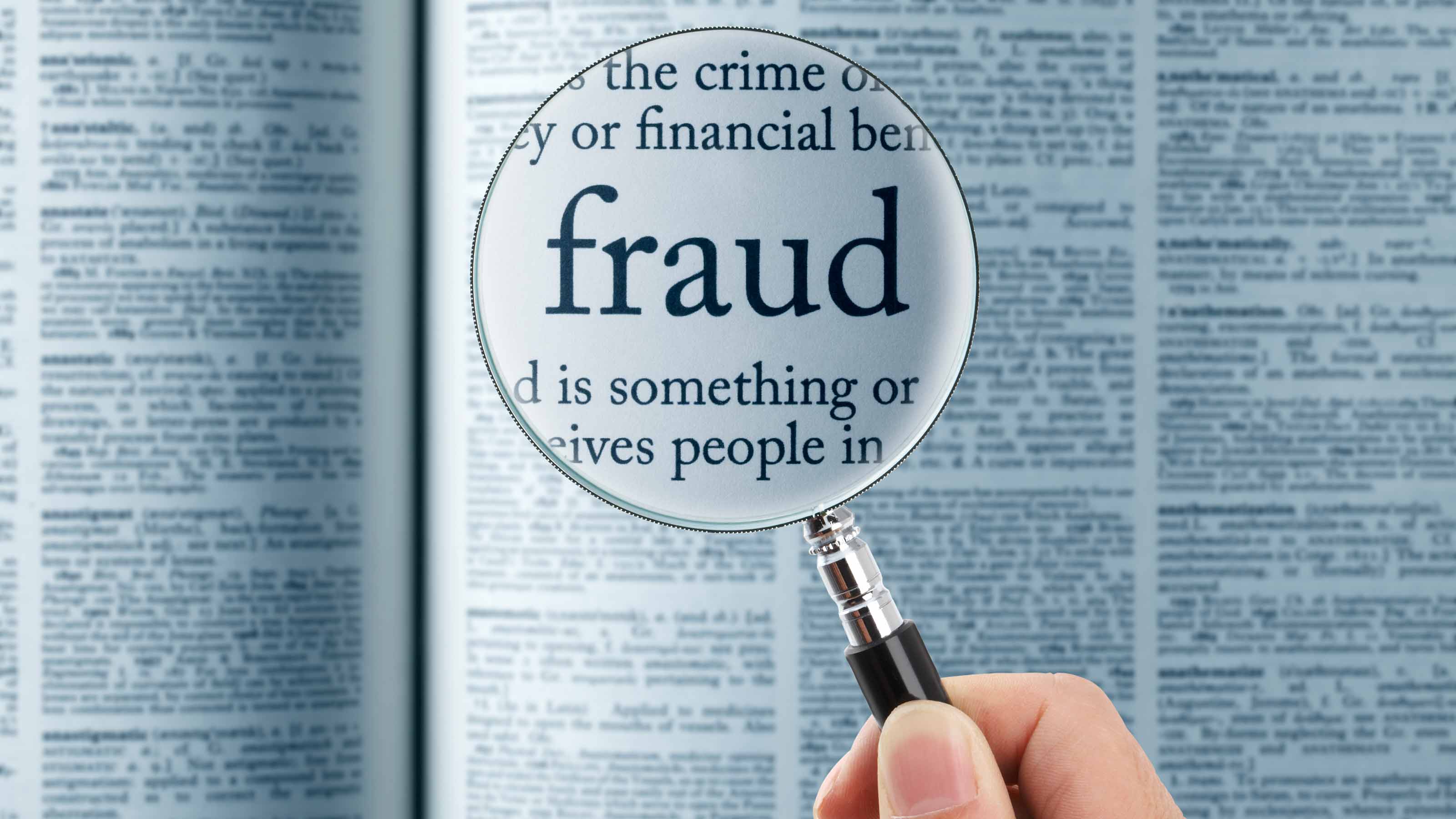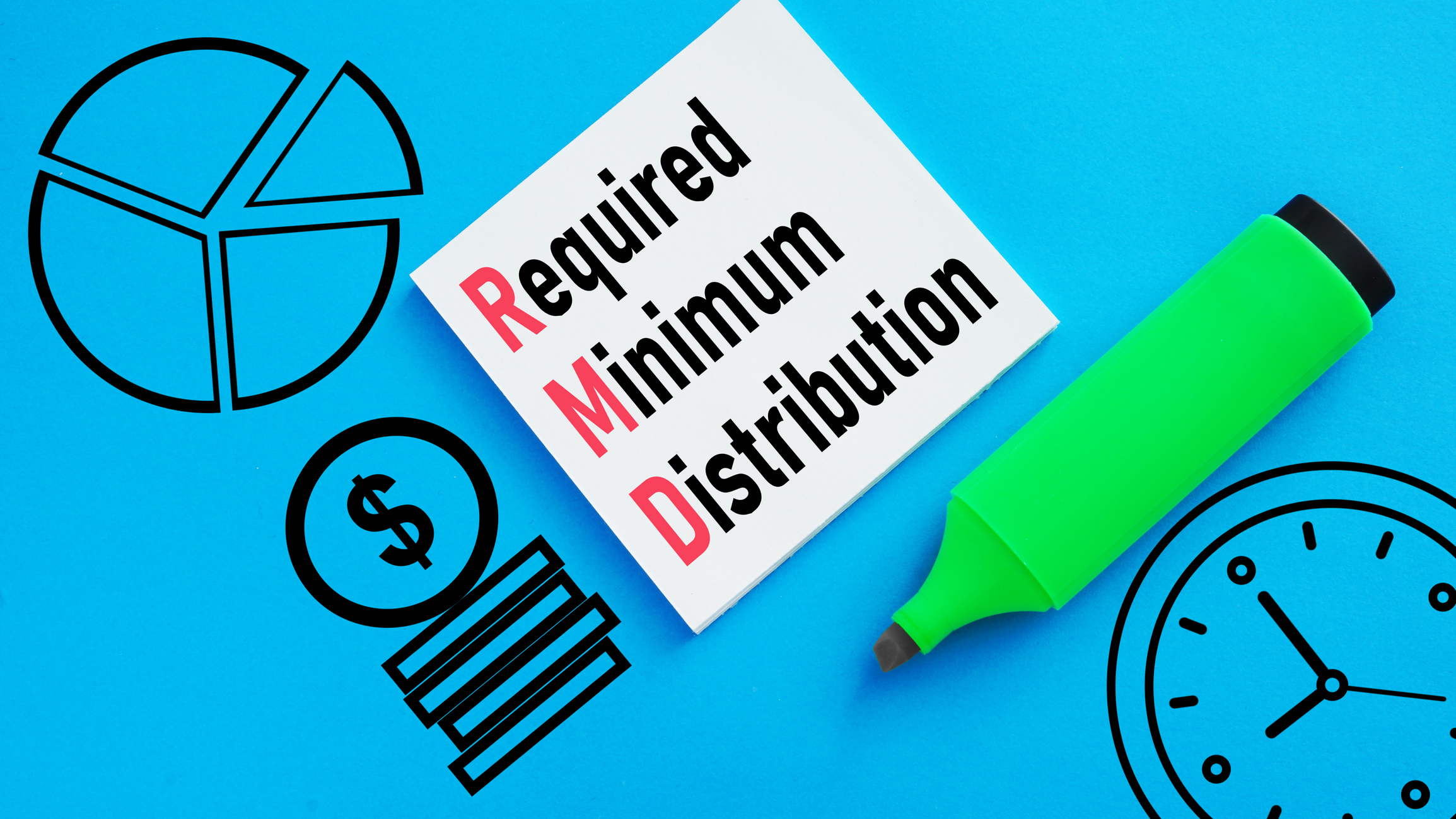Seven Reasons to Avoid a Self-Directed IRA
These specialized retirement accounts let investors do things they can't in an ordinary IRA, like invest directly in alternative assets. But this opportunity also comes with risks.

Donna LeValley

Profit and prosper with the best of Kiplinger's advice on investing, taxes, retirement, personal finance and much more. Delivered daily. Enter your email in the box and click Sign Me Up.
You are now subscribed
Your newsletter sign-up was successful
Want to add more newsletters?

Delivered daily
Kiplinger Today
Profit and prosper with the best of Kiplinger's advice on investing, taxes, retirement, personal finance and much more delivered daily. Smart money moves start here.

Sent five days a week
Kiplinger A Step Ahead
Get practical help to make better financial decisions in your everyday life, from spending to savings on top deals.

Delivered daily
Kiplinger Closing Bell
Get today's biggest financial and investing headlines delivered to your inbox every day the U.S. stock market is open.

Sent twice a week
Kiplinger Adviser Intel
Financial pros across the country share best practices and fresh tactics to preserve and grow your wealth.

Delivered weekly
Kiplinger Tax Tips
Trim your federal and state tax bills with practical tax-planning and tax-cutting strategies.

Sent twice a week
Kiplinger Retirement Tips
Your twice-a-week guide to planning and enjoying a financially secure and richly rewarding retirement

Sent bimonthly.
Kiplinger Adviser Angle
Insights for advisers, wealth managers and other financial professionals.

Sent twice a week
Kiplinger Investing Weekly
Your twice-a-week roundup of promising stocks, funds, companies and industries you should consider, ones you should avoid, and why.

Sent weekly for six weeks
Kiplinger Invest for Retirement
Your step-by-step six-part series on how to invest for retirement, from devising a successful strategy to exactly which investments to choose.
Self-directed IRAs are not for the average retiree or the faint of heart. These specialized retirement accounts let investors do things they can't in an ordinary IRA, like invest directly in alternative assets, including cryptocurrencies, real estate, gold or a private business. A second property, which many retirees invest in for income, could be purchased as an IRA asset using a self-directed account.
Like ordinary IRAs, assets grow tax-free inside a self-directed account, giving a real estate investor, for example, a way to rent properties or buy and sell them using IRA savings while postponing the taxes on any income or capital gains.
"A self-directed IRA would delay those taxes until you withdraw from your plan so you can re-invest all the profits from the sale without having to reduce the net gains by paying taxes now," says Grey Merryman, head of wealth planning at Atlantic Union Bank's Wealth Management Division.
This freedom, however, means more ways for retirees to land in trouble with their hard-earned savings by investing in something that isn't remotely suitable. In fact, partly because of the problems with alternative assets, these accounts have a lot more going against them than for them, and even investing in a second home this way has disadvantages.
Consider these risks.

1. You're not as diversified as you think
Alternative assets are often touted as a way to diversify your portfolio because they don't move in lockstep with stocks or bonds, but many alternative assets, like cryptocurrency, are inherently high risk. What's more, buying some alternative assets directly often requires a sizable chunk of your savings.
A local business or real estate typically isn't a small purchase. Sinking a lot of money into one investment is the opposite of diversification. To diversify using alternative assets like real estate or commodities, stick to mutual funds that invest broadly in them. You can buy these funds with an ordinary IRA.

2.You get no guidance
You can't open a self-directed IRA with mainstream brokerage firms, like Vanguard or Fidelity. Instead, you must work with a specialty custodian, like Equity Trust Co. or IRA Financial, without any guidance or advice.
Self-directed IRA custodians don't give investment advice "because they do not perform any of the due diligence or accept any responsibility for investment selection, suitability or best interest of the investor," says Merryman.
As part of their contracts, self-directed IRA custodians only agree to handle the administrative work for your account. It's up to you to make sure the investments are appropriate, safe and legitimate, but that won't be easy to do.
Alternative assets have less government oversight and are usually less transparent than publicly traded stocks and bonds. Consequently, you will need to hire and pay an independent professional, such as an investment adviser, accountant or attorney, to vet any major investment, says Chase Insogna, president of InsognaCPA in Austin, Texas.

3.There's potential for fraud
Not only can the investments themselves be opaque, but the Securities and Exchange Commission warns that criminals prey on those with self-directed IRAs or encourage people to set one up in order to sell them a fraudulent investment.
"Red flags for fraud can include brand new investment companies with no track record, claims for unreasonably high levels of return or a lack of third-party oversight, such as audits from a reputable CPA firm," says Ryan Shuchman, an investment adviser and partner at Cornerstone Financial in Ann Arbor, Mich.
Fraudsters often fool unsuspecting investors by telling them any investment that a self-directed IRA custodian accepts must be legitimate, which isn't true. Remember, the custodian doesn't verify the investment; it just handles the administrative work. To be clear, "this fraud isn't from the IRA custodians or the self-directed IRA, but rather the type of investments," Insogna says.

4. You'll pay hefty fees
Self-directed IRAs aren't cheap. Along with transaction fees, the IRA custodian can also charge an account setup fee, an annual fee and a fee per asset held in your account.
These fees range from several hundred to several thousand dollars per year, depending on the account size, the number of investments made and the IRA custodian. The same investments made outside of a retirement account wouldn't have any of these extra fees.

5. RMDs still apply
As self-directed IRAs are retirement plans, you'll still need to take required minimum distributions once you turn 73. That can be tricky to do if you're investing in assets that aren't easily cashed in, although there is a Roth IRA version of a self-directed IRA. Like ordinary Roth IRAs, the self-directed version is funded with post-tax dollars for tax-free withdrawals in retirement and has no RMDs.

6. You lose key advantages with real estate
Even owning property in these accounts is only a good idea for an experienced real estate investor with a proven track record of successful deals, says Shuchman.
"You've got the risk both of the deal going bad plus the opportunity cost of not growing your savings in the market," he says. Real estate investors can also kiss goodbye many of the benefits associated with investing in property.
The IRS has rules for self-directed IRAs, and one of them is that you cannot use or manage the assets personally.
"If you buy a beach house as an investment, you or your friends can't stay there for free. If the wind blows off the storm gutter, you cannot fix it yourself but need to hire a professional, using cash from your IRA balance," says Merryman.
If you get caught breaking these rules, the IRS could void your entire IRA, forcing you to take out the balance, not just the problem asset, which could mean a sizable tax bill and the loss of future tax benefits on those savings.
You also miss out on tax breaks for owning the investments outright. It's the IRA that holds title to the property, not you personally, and your IRA doesn't pay taxes each year. That's a problem for real estate investors as they won't be allowed to claim annual deductions for repairs, mortgage interest, depreciation, property taxes or losses against other personal income. Meanwhile, the fees from a self-directed IRA can wreak havoc with your profit margin.
Insogna says the $600 fees his self-directed IRA charged annually ate into his profit margin for rental income, and the deferred taxes didn't seem to make up for it. Insogna regrets using a self-directed IRA for a 2009 real estate deal. "I would have been better off just cashing out my IRA balance, even with the 10% penalty [for someone younger than 59½], given the fees and missed tax breaks."

7. You must follow strict rules when adding gold or precious metals
A self-directed gold IRA is your only option if you want to own or invest in physical gold or other precious metals through an IRA. To set up a self-directed IRA that holds precious metals, you’ll need to pay for more than a custodian.
In addition to the initial setup or administration fee charged by the IRA custodian, you'll likely pay an annual maintenance or storage fee each year to the custodian or depository vaulting company for the secure storage for your physical precious metals.
You’ll need to follow two IRS guidelines to include gold in a self-directed IRA:
1-You can only invest in IRS-approved gold. To avoid buying a prohibited item, consider purchasing from a company that specializes in gold IRAs. They often label qualified precious metals as “IRA-eligible." The IRS says it must be “highly refined bullion.”
- Gold must be 99.5% pure, silver must be 99.9% pure, platinum must be 99.95% pure and palladium must be 99.95% pure
- Produced by a company that’s nationally accredited
- It must be encapsulated in original packaging and include the certificate of authenticity
- Coins are uncirculated and damage-free
- Bars are manufactured to the exact weight
2- You can’t hold the gold in your possession. You are its owner, but the gold must be stored off-site in an IRS-approved depository. Your gold IRA custodian should be able to help recommend an approved depository for your investments. This is a critical aspect of investing in precious metals though an IRA.
Taking possession of the physical gold would be considered a distribution from your IRA that is subject to tax and penalties. .
Related Content
Profit and prosper with the best of Kiplinger's advice on investing, taxes, retirement, personal finance and much more. Delivered daily. Enter your email in the box and click Sign Me Up.

David is a financial freelance writer based out of Delaware. He specializes in making investing, insurance and retirement planning understandable. He has been published in Kiplinger, Forbes and U.S. News, and also writes for clients like American Express, LendingTree and Prudential. He is currently Treasurer for the Financial Writers Society.
Before becoming a writer, David was an insurance salesman and registered representative for New York Life. During that time, he passed both the Series 6 and CFP exams. David graduated from McGill University with degrees in Economics and Finance where he was also captain of the varsity tennis team.
- Donna LeValleyRetirement Writer
-
 Quiz: Do You Know How to Avoid the "Medigap Trap?"
Quiz: Do You Know How to Avoid the "Medigap Trap?"Quiz Test your basic knowledge of the "Medigap Trap" in our quick quiz.
-
 5 Top Tax-Efficient Mutual Funds for Smarter Investing
5 Top Tax-Efficient Mutual Funds for Smarter InvestingMutual funds are many things, but "tax-friendly" usually isn't one of them. These are the exceptions.
-
 AI Sparks Existential Crisis for Software Stocks
AI Sparks Existential Crisis for Software StocksThe Kiplinger Letter Fears that SaaS subscription software could be rendered obsolete by artificial intelligence make investors jittery.
-
 Quiz: Do You Know How to Avoid the 'Medigap Trap?'
Quiz: Do You Know How to Avoid the 'Medigap Trap?'Quiz Test your basic knowledge of the "Medigap Trap" in our quick quiz.
-
 We Retired at 62 With $6.1 Million. My Wife Wants to Make Large Donations, but I Want to Travel and Buy a Lake House.
We Retired at 62 With $6.1 Million. My Wife Wants to Make Large Donations, but I Want to Travel and Buy a Lake House.We are 62 and finally retired after decades of hard work. I see the lakehouse as an investment in our happiness.
-
 Social Security Break-Even Math Is Helpful, But Don't Let It Dictate When You'll File
Social Security Break-Even Math Is Helpful, But Don't Let It Dictate When You'll FileYour Social Security break-even age tells you how long you'd need to live for delaying to pay off, but shouldn't be the sole basis for deciding when to claim.
-
 I'm a Wealth Adviser Obsessed With Mahjong: Here Are 8 Ways It Can Teach Us How to Manage Our Money
I'm a Wealth Adviser Obsessed With Mahjong: Here Are 8 Ways It Can Teach Us How to Manage Our MoneyThis increasingly popular Chinese game can teach us not only how to help manage our money but also how important it is to connect with other people.
-
 Global Uncertainty Has Investors Running Scared: This Is How Advisers Can Reassure Them
Global Uncertainty Has Investors Running Scared: This Is How Advisers Can Reassure ThemHow can advisers reassure clients nervous about their plans in an increasingly complex and rapidly changing world? This conversational framework provides the key.
-
 5 Ronald Reagan Quotes Retirees Should Live By
5 Ronald Reagan Quotes Retirees Should Live ByThe Nation's 40th President's wit and wisdom can help retirees navigate their financial and personal journey with confidence.
-
 We're 78 and Want to Use Our 2026 RMD to Treat Our Kids and Grandkids to a Vacation. How Should We Approach This?
We're 78 and Want to Use Our 2026 RMD to Treat Our Kids and Grandkids to a Vacation. How Should We Approach This?An extended family vacation can be a fun and bonding experience if planned well. Here are tips from travel experts.
-
 Should You Jump on the Roth Conversion Bandwagon? A Financial Adviser Weighs In
Should You Jump on the Roth Conversion Bandwagon? A Financial Adviser Weighs InRoth conversions are all the rage, but what works well for one household can cause financial strain for another. This is what you should consider before moving ahead.
